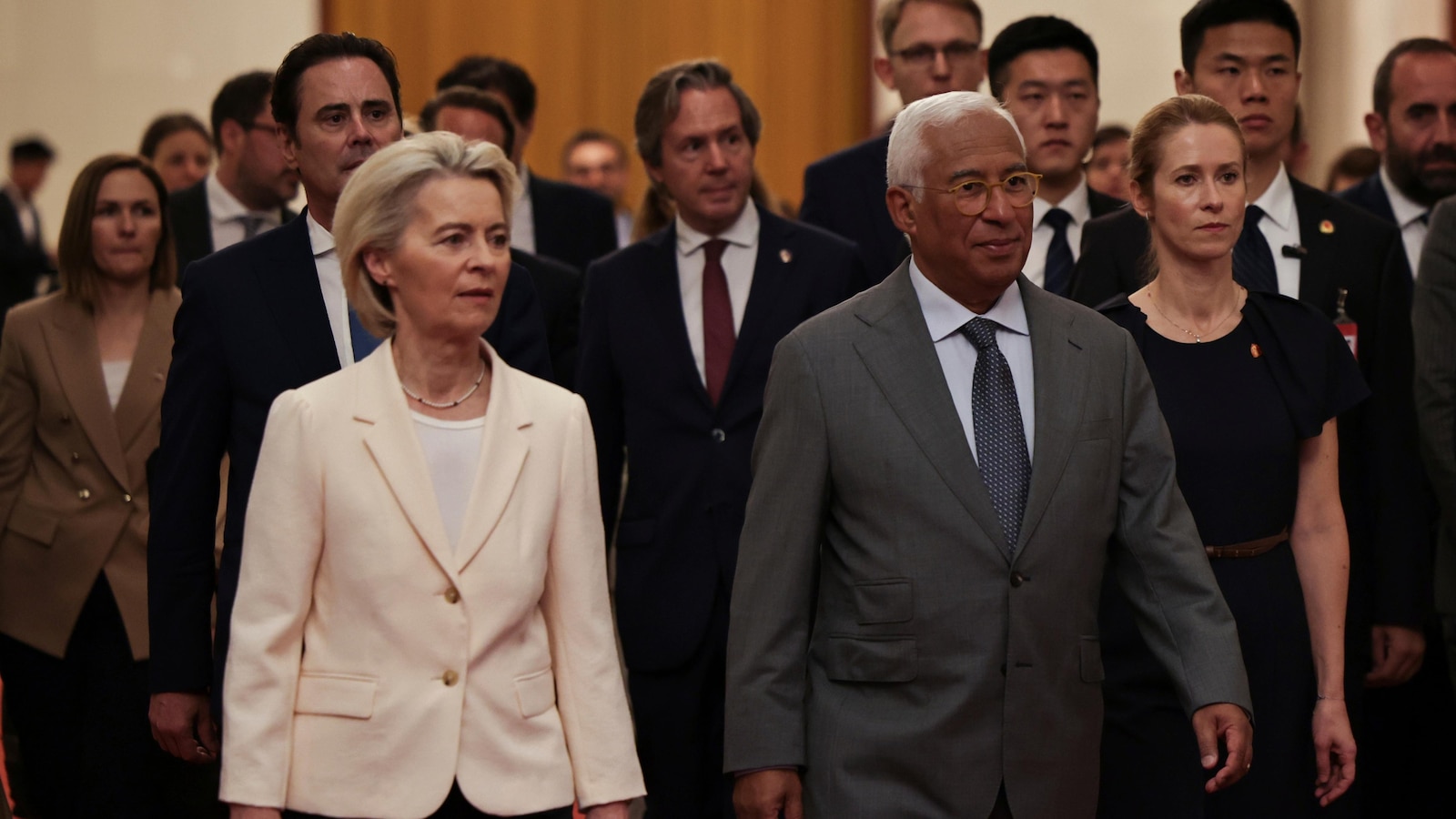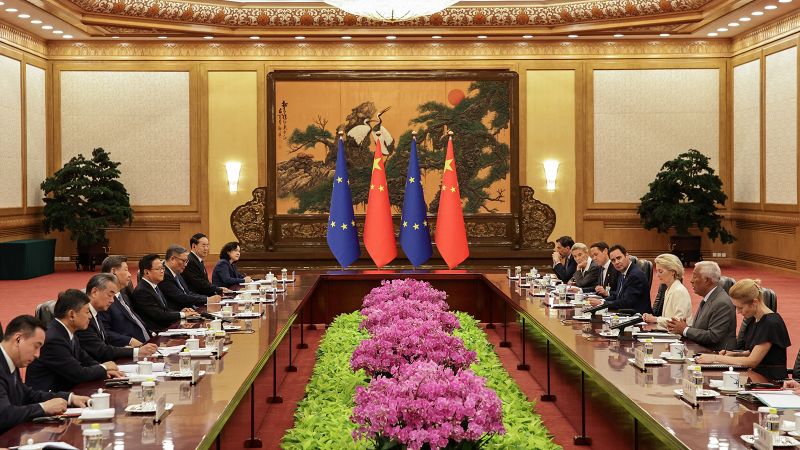EU Presses China on Ukraine, Trade Imbalance, and Climate Cooperation
European leaders urge China to influence Russia on the Ukraine conflict, address a record trade deficit, and reaffirm commitment to climate change coordination, highlighting the complex EU-China relationship.
Overview
- European leaders are urging China to leverage its influence over Russia to help end the conflict in Ukraine, amidst accusations from Brussels that China indirectly supports Moscow through deepening ties.
- Brussels has expressed concern over China's strengthening relationship with Russia since the invasion, suggesting it constitutes indirect support for Moscow's actions in Ukraine.
- Despite geopolitical tensions, China and the EU are committed to strengthening coordination on climate change initiatives and upholding the crucial goals outlined in the Paris Agreement.
- The European Union recorded a historic trade deficit with China last year, reaching 305.8 billion euros, contributing to a total deficit of 300 billion euros, highlighting economic imbalances.
- These multifaceted discussions between the EU and China encompass critical geopolitical issues like Ukraine, significant economic challenges, and shared environmental objectives, reflecting a complex global dynamic.
Report issue

Read both sides in 5 minutes each day
Analysis
Center-leaning sources frame this story by emphasizing the eu's demands for a rebalanced relationship with china, highlighting the "yawning trade deficit" and low expectations for the summit. they portray china as having a "hardened stance" and being less willing to make concessions, often through expert analysis. the narrative positions the eu as navigating complex geopolitical challenges, seeking new alliances amidst a "combative washington" and "hardline beijing."
Articles (3)
Center (1)
FAQ
The European Union is urging China to leverage its influence over Russia to help end the conflict in Ukraine because Brussels accuses China of indirectly supporting Moscow by strengthening ties with Russia amid the invasion, thereby complicating efforts to resolve the conflict.
The EU recorded a historic trade deficit with China amounting to €305.8 billion in 2024, driven mainly by imports of manufactured goods such as machinery and vehicles. EU exports to China totaled €213.3 billion, whereas imports from China reached €519 billion, highlighting significant economic imbalances.
Despite geopolitical tensions, both the EU and China remain committed to strengthening coordination on climate change initiatives and upholding the critical targets outlined in the Paris Agreement, reflecting a shared commitment to environmental goals.
The EU-China summit in 2025 was shortened from two days to one and relocated to Beijing after Chinese President Xi Jinping decided not to attend in Europe, reflecting China's limited willingness to engage extensively with EU leaders amid tense trade and geopolitical relations.
Key challenges include the EU's large trade deficit with China, restricted market access for EU producers, and China's industrial policies favoring domestic companies with subsidies and favorable regulations, intensifying disputes in trade relations.
History
- This story does not have any previous versions.


